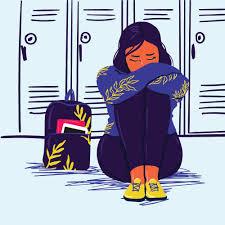Depression In Teens
A new school year can bring new challenges and struggles for young people. Add on top of that changing bodies and hormones, and it can be a particularly challenging time for teenagers. As parents, we often wonder if our child’s behavior changes are typical or if they are something more that could be cause for concern. It’s important for us to familiarize ourselves with the signs and symptoms of depression so we can help our children live happier and healthier lives.
All of us have some moments in life where we might feel down or a little depressed. This is typical and can be healthy. However, a depressive disorder is a strong sadness or mood change that interferes with a person’s ability to function in some way. Symptoms can last for as little as a couple of weeks to years if not treated. About 20% of teenagers experience depression before they reach adulthood. More than 8% of adolescents suffer from depression that lasts for a year or more.
Depression in teens does not come from one cause but can arise from a variety of physical, psychological and environmental factors including low serotonin levels, low self-esteem, poor body image, relationship changes or loss, trauma, peer pressure, bullying and abuse.
According to the Diagnostic and Statistical Manual for Mental Disorders, general symptoms of a major depressive episode include having a depressed or irritable mood for longer than two weeks plus at least five signs of depression. These signs include sad feelings, frequent crying, loss of interest or pleasure in activities that once made a person happy, significant weight loss or weight gain, an increase or decrease in appetite, anger, agitation, fatigue, trouble concentrating, withdrawal from family and friends, a change in sleep pattern and thoughts of death, or thoughts, or plans or attempts at suicide.
Depressed teens may also perform poorly at school, complain of boredom, engage in self harm, exhibit risky behaviors and have frequent complaints of physical symptoms including headaches and stomach aches.
If you feel like your teenager is experiencing depression, start with a primary care physician for a referral or contact a trained health care professional, who can diagnose your child and offer appropriate medical advice. More information on raising healthy families is available at the Butler County Cooperative Extension Service.
For more information, contact the Butler Cooperative Extension Service at 102 Parkway Lane, Morgantown or call 270-526-3767.
Educational programs of Kentucky Cooperative Extension serve all people regardless of economic or social status and will not discriminate on the basis of race, color, ethnic origin, national origin, creed, religion, political belief, sex, sexual orientation, gender identity, gender expression, pregnancy, marital status, genetic information, age, veteran status, or physical or mental disability.
By: Tracy M. Cowles, Extension Agent for Family and Consumer Sciences
Source: Kerri Ashurst, Senior Extension Specialist



























